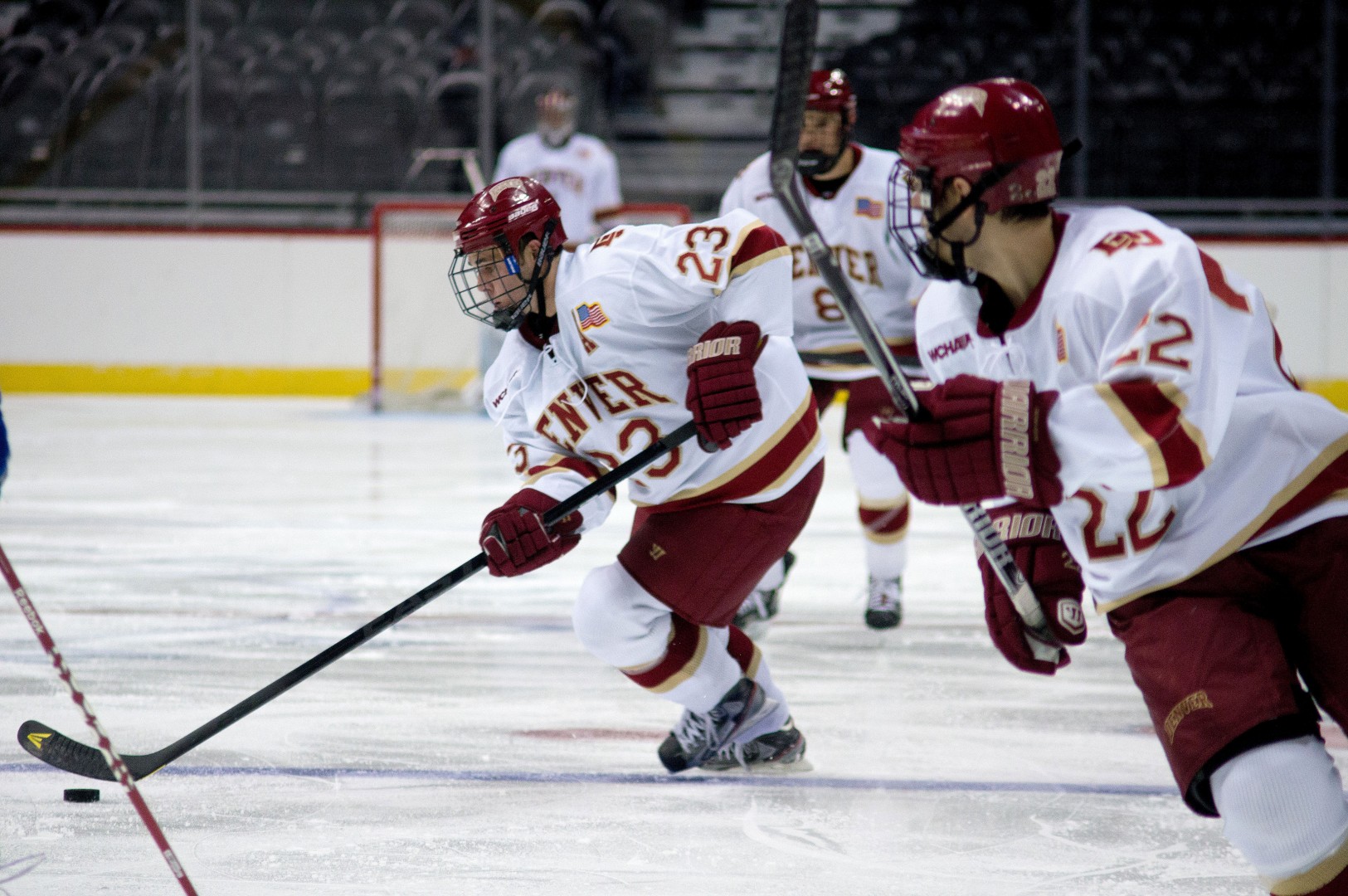A group of sustainability team members are working in conjunction with the Ritchie Center and Sodexo Dining to transition Pioneer hockey games to “waste free” by the end of the year.
The group has been active at three games so far this season, including the games versus Nebraska over the weekend. In those games, 60 percent of waste was diverted to compostable bins, making the games “60 percent waste-free”, according to DU Environmental Team (DUET) President Megan Marshall, a junior.
The effort comes from a group of volunteer “waste goalies,” who divert waste by directing people to the proper bins as they throw away their trash. These “goalies” stand by the trash and compost bins throughout the Ritchie Center and instruct people where the most appropriate place for their waste is, ensuring that all compostable items are put in the compost bins.
Marshall said the goal of the group is to achieve 90 percent diversion rate by the end of the year, the percentage necessary for an event to be officially called “waste free”. They currently average about 62 percent per game.
However, according to Marshall the maximum waste diversion percentage currently achievable is 64 percent, a factor of the team not yet manning all waste bins at the Ritchie Center.
“We are still transitioning to being ‘zero waste,’” said Marshall “It is a long process.”
For each game, teams of two stand at the bins located in the concourse area, arena and seating area and in the upstairs “Gold Level,” a total of 16 bins. According to Marshall, at least 24 volunteers are needed to cover every bin, and 30 for the event to be really “effective.”
Volunteers, averaging about 30 a game, come from DUET, student and faculty volunteers, student groups and community volunteers. Marshall hopes to get enough volunteers to expand services to all the bins in the Ritchie Center during game time.
“We are hoping we can expand soon, but currently we are just not there yet,” said Marshall.
According to senior Mariah Shell, vice president of DUET and a regular volunteer at zero waste games, there has already been lots of improvement in the process.
“People are really nice and they are starting to pick up on what we are doing,” she said. “Megan has made amazing progress.”
The group has received support in its efforts from officials of the Ritchie Center and Sodexo Dining Services as well.
Marshall said the Ritchie Center faculty has been helpful in giving members access to games and the Gold Club in order to cover all of the bins in the area. They have also begun transitioning to selling more sustainable items, such as compostable cups, utensils and containers.
The USG sustainability council also has helped the cause, and offered to buy the entire stock of Sodexo’s non-compostable items so they could sooner transition to all-compostable materials.
Marshall says that in order for “zero waste” games to be a reality, however, there are still improvements that must occur. Specifically, she said bins near concession stands need to be made more available to patrons, and there needs to be a compostable and recycling bin for every waste bin in the building.
She also hopes to expand volunteers by February 8 to cover all bins in the bathrooms and even areas of the Ritchie Center unaccessible to hockey patrons during games in the push to be “waste free”.
The model is based off of the “zero waste football games” at CU Boulder, which has achieved 88 percent diversion rate through a five year effort.
Eventually, Marshall said she would like to see zero-waste efforts expand all over campus.
“It would be nice to have complete transparency on campus,” she said. “There would always be recycling bins next to all the trash bins on campus.”
Marshall hopes this will also encourage others to be more sustainable in their everyday lives.
“Recycling is like a ‘gateway drug,’” she said. “This encourages people to be more sustainable in their everyday lives.”











